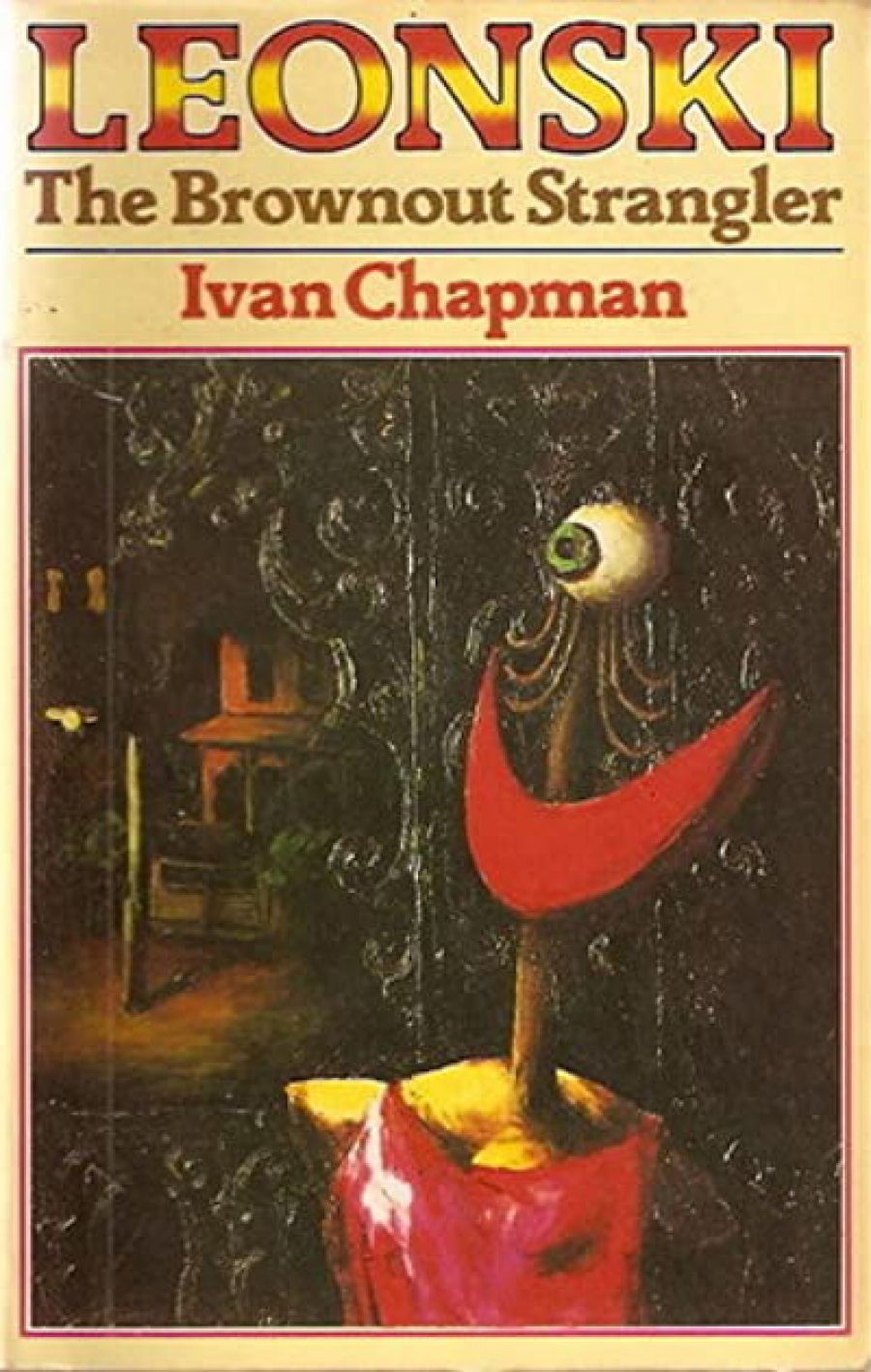
- Free Article: No
- Contents Category: Fiction
- Review Article: Yes
- Online Only: No
- Custom Highlight Text:
Eddie Leonski was a private in the United States Army who was tried and executed for strangling three women in wartime Melbourne. Barely three weeks elapsed between the first murder and Leonski’s arrest. He was executed six months later, in November 1942. There seems no doubt that Leonski committed the crimes; whether he had a fair trial is another matter.
- Book 1 Title: Leonski
- Book 1 Subtitle: The brownout strangler
- Book 1 Biblio: Hale & Iremonger, 253 pp, $24.95 hb, $11.95 pb
The Australian Encyclopaedia lists the Leonski murders among the country’s notable crimes. They are certainly of great sociological interest: already uneasy because of the Brownout, a great number of Australian citizens were for the first time afraid of moving freely through their city at night. The icons of this atmosphere of fascinated horror and revulsion are Albert Tucker’s Images of Modern Evil, two of which are included in the illustrations.
In the history of Australian law the case is notable primarily for its international implications. In return for its military presence, the American government demanded of each of its allies that any American serviceman arrested for criminal offences should be handed over to US army authorities. In effect, this deprived the community of the right to deal with the growing number of Americans committing crimes against Australian law. It also gave American courts-martial some powers over Australian citizens. The arrangement was not reciprocal.
Ivan Chapman evokes the atmosphere of wartime Melbourne and records both the skilful investigation carried out by the Victorian Police and the trial itself. The medical aspects of the trial and subsequent comments by psychiatrists are of great interest, including a comparison with Arnold Sodeman. Ivan Chapman clarifies the legal issues, which were of national importance, and places them in relation to the dilemma of both the American and Australian authorities in dealing with the explosive situation between Australian servicemen and their American counterparts stationed in this country. During the course of writing this book, the author interviewed or corresponded with numerous people in both Australia and the United States who took part in the manhunt after the murders, or the court-martial, or both.
The preface includes a bibliography and a comprehensive list of people consulted. There is no index. Recommended for public libraries, law libraries and any collections with an interest in Australia during World War II.


Comments powered by CComment